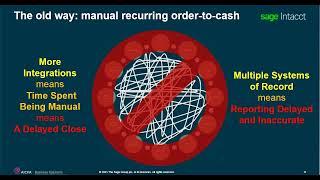
Common Sentence Endings In Korean - TalkToMeInKorean
Комментарии:

As a very direct person, I’m internally screaming when learning korean 😭
Ответить
Loved this. Thank you. I am not at this level quite yet, but it did help a lot! Perfect graphics to make it understandable!
Ответить
♥️♥️♥️♥️
Ответить
This was really helpful thank you!
Ответить
This answered a lot of questions for me. Thank you. I like the format and this was a good length - not too much at once. :)
Ответить
Hi!! Can you explain when do I use 를 수 도 있다. I know when can I use ㄹ/ 을 수도 .... but 를 when do we use it??? 감사합니다!!!
Ответить
I know about the 반말 and 존댓말 but a single word can be said in so many ways that it's confusing like 좋아요, 좋아세요, 좋았습니다, 좋아, 좋아합니다, 좋았는데
Ответить
Very much informative sentence endings. Thank you😊
Ответить
I don't know if it's just me, but I have a hard time understanding names when Koreans say them, it sounds like too fast and it all blends together? I don't have a lot of listening practice, so I hope that will make it better
Ответить
On the example with -는데요, when he was talking about the document I tried to think of how we do that in English and it’s kind of like when you say “umm… the document wasn’t there.” The umm kinda implies the same questions of “what do you want me to do?”or we go “errr.” We just make a strange sound before the sentence and look confused. It’s also implied in the inflection we use in our voice, but I can’t convey that through text. I never realized this was a part of language until I started learning a foreign language, though I don’t think this would be found in any dictionary.
Ответить
I enjoyed this video a polite young man. I fell in love with cloy and the sound of the Korean language. I am scottish/italian i understand most latin languages. Korean sounds wonderful and would like to learn and understand phrases. Marisa Dover uk.
Ответить
most important video, 감사함니다..
Ответить
Thank you for this 😊😊
Ответить
Hi! I loved this grammar video! MUCHAS GRACIAS! As suggestion I will ens the video with a few more sentences as examples of all the explained endings. Thanks again!
Ответить
Now I understand a lot more about sentence endings, but I want to know what it means 됐어 or 돼서 at the endings, i hear it a lot but i dont know what it means D:
Ответить
awesome, thank you
Ответить
I feel proud myself, i know some verb ending 😅
Ответить
Batchim Rules . They used to confuse the htld out of me
Ответить
So useful🤘🏼
Ответить
저는 영어를 배우고 싶어서 들어왔습니다
너무 어려운 영어TT

Very good
Ответить
I love this kind of videos, thank you ttmik
Ответить
সুন্দর
Ответить
“I will marry you-“
“OMG YES”
“wait i haven’t finished “
“I will not marry you”

Can you teach how to make negative sentence in Korean with all type of grammar 🙏🥺🙁
Ответить
This video helped me a lot, the nuances of the different endings can be overwhelming sometimes
Ответить
If verb's last vowel is 아 or 오 then the polite ending in Present t. should be 아요. The rest of the verbs (excluding 해요) should be ending with 어요. However why the verb 얇다 becomes 얇아요 if the last vowel is 야? Shouldn't it be 얇어요? Please, tell me if this is an exception!
Ответить
omg. i loved this video. so helpful and so interesting and so useful. thank you for this.! :)
Ответить
The Lord of the Second Advent already came to the Land of Korea. Please do not miss it! Please study the Life and Works of the Rev. Sun Myung Moon and Dr. Hak Ja Han Moon; the Divine Principle - formula to solve all problems and answer all the fundamental questions about life and the universe....also need to Liberate and Bless your Ancestors.
Ответить
Hi~ Very good lectures to learn Korean.
Ответить
Wow i was into studying Korean a lot before, but now I just kind of been enjoying music and kdramas without really being too serious about studying. After watching this video, i noticed that i picked up on some of these patterns naturally through immersion, i even understood/translated some words that i didn't know i knew😮
Thank you and this has given me more inspiration to take my studying seriously. 정말 감사합니다

this format is very helpful. It explains a lot and makes it easy to understand by breaking down sentences and showing how endings work.
Ответить
thank you for the video!! I have a question though. why do we put ㅆ before the sentence ending and it is pronounced as silent? and is it essential to put ㅆ before the sentence ending in all formal sentences?
Ответить
This format is very good and explained a lot. Thank you
Ответить
The cake looks tasty.
Ответить
감사합니다 선생님 for this detailed explanation. This type of learning is just like a scenario sitting inside the classroom. 😻오늘 고생하셥셔!
Ответить
Wow it feels great to come across this. I wish you were my teacher in the language school or the teachers teach and explain like you.
I'm a language student presently in Korea but all teachers teach only in Korean and the lesson is not very understood since I can barely hear what they are saying. Thanks so much please give me more details on how part of these classes often

I am glad for the thoroughness in this type of video to answer your question.
Ответить
Very helpful, thank you
Ответить
This video is very helpful ! :) absolutely helped me in having a better understanding on the nuances of these different sentence endings.
Ответить
The language that is spoken here, in honor of King Sejong, can be called "classroom Korean" or "hangeul dialect", as far as pronouncing the verb ending [-요] is concerned.
Outside professional teaching situations, Koreans normally say [같아여], [수도 있어여], [맛있져], [아니여], [그런데여], [만났어여], [없어여], [그겋네여], [안녕하세여, 어서오세여, 앉으세여].
Sorry for good old King Sejong, but I would like to ask Korean teachers "How about teaching real Korean, as it is spoken in the 21st century, instead of wallowing in medieval nostalgia?"

So the ending 세요 is to politely command/lessen the command when politeness is needed, yes? So since 주세요 is "please give", would 세요 be simplified in English as "please"? Like 앉으세요 as "please sit down"?
Ответить
You have no idea how much this helped me omg thank you so much
Ответить
This is so useful, thank you!
Ответить
It's great explanation! I was graduated from Korean Language and Literature 22 years ago, but i could never think that Korean is easy. 감사합니다🌸
Ответить
I really liked how you described ㄴ 것 같아요. I had learned this ending but I feel like I understand it better now. Also I hadn’t realized the nuance of 을 수도 있어요. I’m probably going to rewatch this video a lot to make sure I remember haha. If you said 을 수도 없어요, would that be like saying “it might not”? Or can it not be used that way. Like could you say “갈 수도 없어요” to mean “I might not be able to go?”
Ответить
How bout 아는데?
Ответить
I love summary vidoes like this. It really helps solidify things I've learned, and also lets me know the most popular endings I should work into conversation as I get better at Korean.
Ответить
Notes: Common sentence endings
Feel free to use these to study!
•Fundamental differences
- sentence beginnings in English
-Contains important information
. Do you want to
.Do you mind if
.Did you
.How did you
.Etc
-Important in English for information
-Korean “beginnings” are in the end of the sentence
•Korean Endings
- 요
.Person is being “formal” and/or “polite”
.존댓말 (Polite Language)
-ㅂ니다
.Also Polite and formal
.More polite than 요
.존댓말 (Polite language)
-은것같아요/는것같아요/ㄴ것같아요
.Comes from 같다 (To be the same)
.It seems like/it looks like/it feels like
.Main meaning : I think
.Used to be more polite
-를숙도있어요/을수도있어요/ㄹ수도있어요
.That possibility also exists/it might
.수있다 means can/possibility
.도 means also
-죠
.Short for 지요
.Asking for somebody to agree with you
.No you’re wrong, I’m correct
.Can also mean of course
-ㄴ데요/는데요
. Comes from 그런데 - but/and
.Your sentence hasn’t ended
.You want the other persons participation
-네요
.Agreeing with someone
.What you noticed
-세요
.Contains honorific suffix 시
.A command






![Idaho Mule Deer Hunt 2019- Wilderness Packraft Trip [4K] Idaho Mule Deer Hunt 2019- Wilderness Packraft Trip [4K]](https://invideo.cc/img/upload/dzBYZjhjRVZ3Si0.jpg)



















